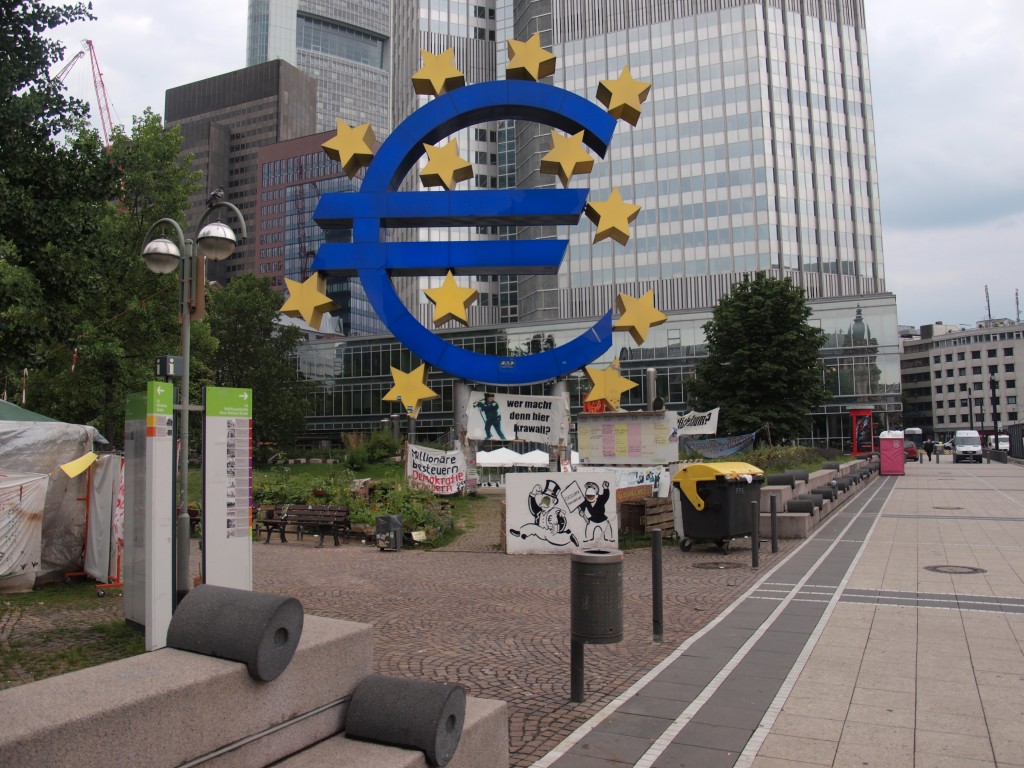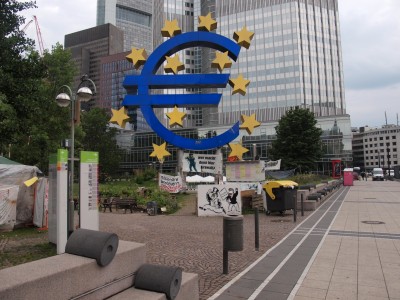Good news from the European economy cannot be bad!
The topic of the day concerns sanctions against Russia. We will omit this political-security-international topic with the notion that mutual trade restriction always ends with two losers and no winner. Thus, let’s see what surprise will this bring and rather start on the other side of the planet.
In the end of July, Argentina brought the excitement to the world. This country went bankrupt in 2001 and made a deal with 92% creditors to write off part of its debt. The problem is that part of the rest of creditors decided to go to the court to ask for not part, but everything. And since the bonds were under American law (they would not be much of the interest under Argentinian one), American court decided the case with the result that Argentina has to pay everything. Although only $1.5 billion is in question, such a decision may cause an avalanche of further actions and put Argentina in dilemma how to return borrowed $20 billion which have been spent long ago. As the local government failed in negotiations with creditor about compromise solutions, the country declared bankruptcy this week. Argentinians are probably facing hard times.
Victory of the “vultures” – as Argentinian president Kirchner calls the investors, who are just trying to get what they were promised, may have implications on the euro area, in particular on Greece. The strongest (but so far opposition) party SYRIZA takes a similar stance as Kirchner. But the problem in Greek case is that in case of its difficulties, vultures are all taxpayers of euro area who hold the major part of Greek debt.
That equals 174.1% of GDP. According to the recommendations of the IMF, it should be “significantly below 110%” by 2022. No wonder though, the solution will be simple write off of the debt. Even Greek parliamentary budget office warned that the country needs a third package of assistance and that the problems of banking sector persist. Concerning the banks, also Greek finance minister agreed, who considers upcoming stress tests under ECB to be a risk for his country.
The country is comforting itself by the fact that after 6 years of recession, the forecast for 2014 is the growth of 0.7% of GDP. The Helens had the toughest awakening from the euro dream. Their economy has shrunk by the whole quarter since the crisis. And unlike many other countries, Greece has done even more unprecedented steps. For instant, expenditure on wages in government fell from 24.5 billion to 16 billion euros per year and number of employees was reduced by 20% to 675 thousand. These numbers will fade though, when we put them in the Slovak context. We pay 4.6 billion euro for out 340 thousand public employees. And if we take into account the size of the population, Greek expenditures only to the salaries of civil servants are, even after drastic cuts, still twice as big as in Slovakia, the country which helped to save the Greek economy.
But the help from temporary EFSF is coming to its end this year (the next one, from IMF is starting in 2016). Nobody knows, what’s coming next. But the other members of PIIGS club are doing better. Ireland even intends to redeem the IMF loan sooner, with money that will borrow on the market. Market interest rates on Irish government bonds (slightly over 2%) are in fact well below the interest rate of Irish loan from IMF (5%).
It seems almost like a fairytale. The news from Spain also report better times. Newspapers are pleased to announce that the net profit of Bankia (banking conglomerate consisting of seven bankrupt banks in 2010) in the first half rose to 432 million euros from 200 million in the same period last year. The only pity is that in 2012 it suffered a loss of more than 19 billion euros. Even Portugal averted its shot on a goal. The shares of problematic BES bank soared up after international investors have announced their entrance to the bank, including Goldman Sachs.
Better days are underlined by Lithuania too, which received the final confirmation of its entry into the Eurozone in 2015. The only whipping dummy in this economic battle is France, where number of unemployed increased annually by 10% and is approaching the threshold of 5.5 million people. But finger-pointing is already annoying the French politicians. A great resistance is accompanying the candidacy of former Finance Minister Moscovici for the Commissioner for economy. But he is defending his position: “We have to stop this beating of France. France is a serious country whose people can trust. A French Commissioner, no matter his portfolio, is the Commissioner who can be trusted.” So we therefore trust that France will meet the last rules about the amount of the deficit, which it agreed upon and which they failed to meet already two times – coincidentally, under Moscovici rule.
Brussels occasionally gets sober from the intoxication of spectacular goals and strategies, paid by citizens. But sobering means that the goal is slightly less grandiose but in the end, likely purposeless and economically harmless. The original proposal to save 40% of energy by 2030 was cut to 30%. Still, it is a substantial increase when compared to the goal of 2020. Hopefully, the final goal of “energy policy” will not mean the return to the caves.
Couple of days ago, world was amused by Turkish Deputy Prime Minister. According to him, women on the street should not laugh, because it is a sign of moral decay. Turkish women subsequently flooded social media with shots of forbidden laugher on the street.
You too, should lough. Until it’s not prohibited – or taxed
Martin Vlachynský
31.7.2014
Translation: Stanislava Dovhunová




